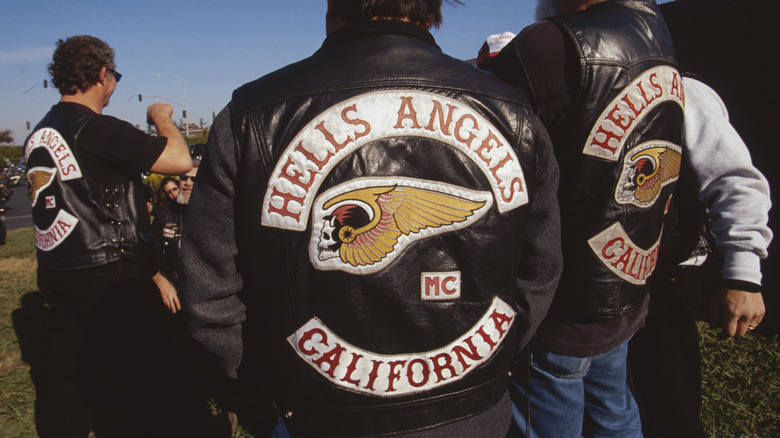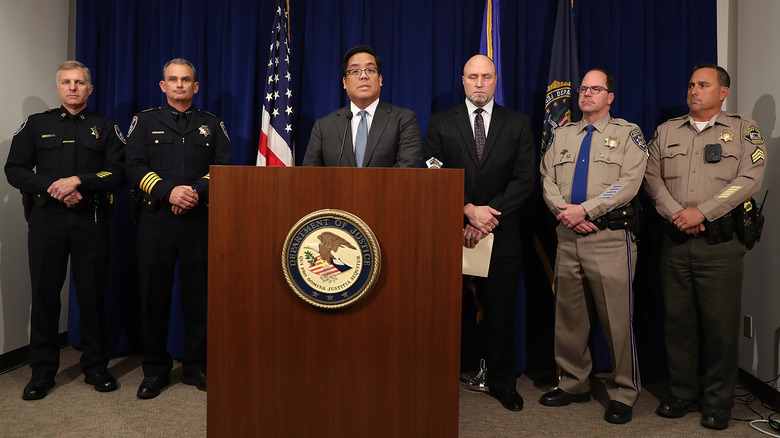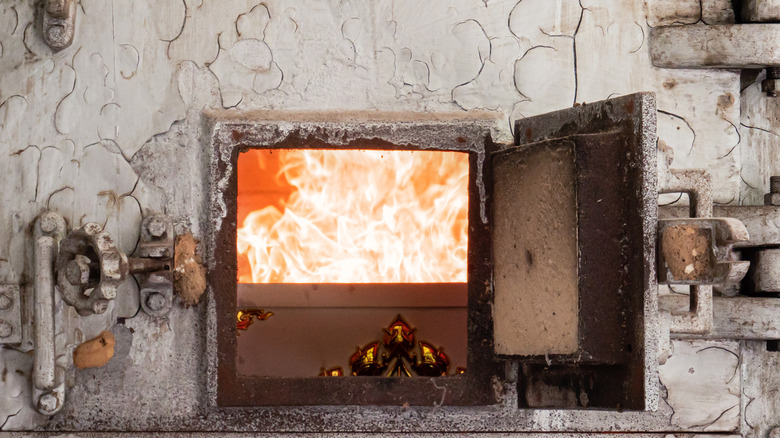Inside The Gruesome 2014 Murder And Aftermath Of Hells Angel Joel Silva
Back in the 1960s, the outlaw motorcycle club The Hells Angels was something of a counterculture curio. Though they had been accused of numerous crimes in the mainstream media, various groups including Ken Kesey's Merry Pranksters and even The Beatles themselves lined up to party with the legendary bikers. But as the decade of free love wore on, the Hells Angels' reputation quickly changed.
In 1967, Gonzo author Hunter S. Thompson, who would later find widespread fame with his novel "Fear & Loathing in Las Vegas," published his book "Hells Angels," which outlined his dealings with the notorious biker gang. Having initially gained the trust of the group, Thompson's friendship with the Angels soured as he encountered scenes of violence and sexual assault.
Similarly, the gang's role in the disaster that was Altamont, a festival at which the Hells Angels were hired as security and which descended into violence that eventually saw members of the gang stab a concertgoer, showed their true colors. The incident has been identified as the end of the hippie movement and saw the Hells Angels characterized as nothing more than thugs and criminals in popular culture. Half a century on, the Hells Angels still exist, with chapters all over the world, and their criminality continues, with reports emerging of bloody murders that include the killing of their own members.
The killing of Joel Silva
The Hells Angels chapters based in Sonoma County and Fresno, California as well as Salem, Massachusetts, have been particularly visible in the news in recent years on account of a host of criminal activities that have left several members behind bars and one former member dead.
In 2017, 11 members from across the three chapters of the motorcycle club were indicted on charges including "murder, conspiracy to commit murder, narcotics distribution, assault, robbery, extortion, illegal firearms possession, obstruction of justice, and witness intimidation," per the U.S. Attorney's Office, Northern District of California. The federal indictment was the culmination of a three-year investigation into the chapter's activities in the area and came after the murder of Joel "Doughboy" Silva, A Sonoma County chapter member who had reportedly threatened a friend of biker Christopher Ranieri, the former president of the Salem chapter. That threat was deemed disrespectful, and on July 15, 2014, Silva was lured to a clubhouse in Fresno, where he was shot to death.
Gruesome details
The killing of the Hells Angels' Joel Silva gained a great deal of attention once again in 2022, when three members of the motorcycle club were convicted of his murder, while Ranier was convicted in May 2023 of "conspiracy to commit murder in aid of racketeering," along with multiple related charges, per the U.S. Attorney's Office of Northern District of California. At the time of this writing, he has yet to be sentenced but faces a maximum sentence of life in prison. The convictions were the end of an explosive trial in which the accused criminals had their actions laid out in a court of law, and as the prosecution's case unfolded other brutal crimes came to light, with details even emerging of the gang's grisly method of allegedly disposing of the bodies of those they killed.
Per The Guardian, in October 2023 prosecutors alleged that former Fresco chapter member Merl Hefferman was instrumental in disposing of the bodies of Silva and others in a local crematorium, which the gang came to know as "the pizza oven." Levi Phipps, the manager of Fresno's Yost and Webb Funeral Home, testified in court that in 2014 the bikers had told him to leave the business' incinerator open and was held at gunpoint as they used it to dispose of a body. In total, prosecutors alleged that the gang attempted to use the crematorium to dispose of the bodies of four murder victims. Thus far, Hefferman has been sentenced to just four years in prison for obstruction of justice.


